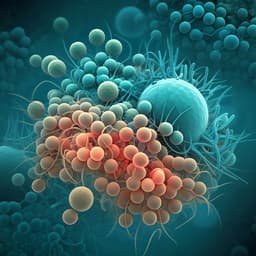
Medicine and Health
Programmable probiotics modulate inflammation and gut microbiota for inflammatory bowel disease treatment after effective oral delivery
J. Zhou, M. Li, et al.
This groundbreaking research by Jun Zhou, Maoyi Li, Qiufang Chen, Xinjie Li, Linfu Chen, Ziliang Dong, Wenjun Zhu, Yang Yang, Zhuang Liu, and Qian Chen unveils an innovative approach to combat intestinal inflammation in inflammatory bowel disease using engineered *Escherichia coli* Nissle 1917. The study shows that the enhanced probiotic, combined with chitosan and sodium alginate, significantly reduces inflammation and promotes gut health.
Related Publications
Explore these studies to deepen your understanding of the subject.







